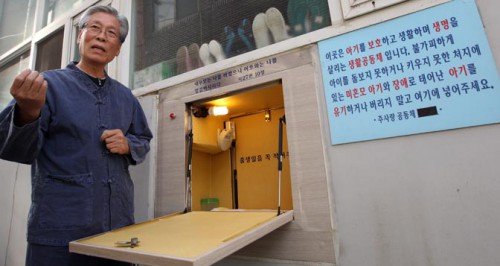
 The widely loved writer and thinker Philip Yancey (who also happens to be coming to Mockingbirdtown this week) has come out with a new book, called Vanishing Grace: Whatever Happened to the Good News? In it, he seems to have a lot to say about the falling state of American Christendom in its cultural conception, not as being lovers and welcomers and forgivers, but as being rigidly judgmental, self-oriented, and more or less “anti-” everything.
The widely loved writer and thinker Philip Yancey (who also happens to be coming to Mockingbirdtown this week) has come out with a new book, called Vanishing Grace: Whatever Happened to the Good News? In it, he seems to have a lot to say about the falling state of American Christendom in its cultural conception, not as being lovers and welcomers and forgivers, but as being rigidly judgmental, self-oriented, and more or less “anti-” everything.
I’m excited about the book, mainly because I’ve seen Yancey speak before, at St. George’s in Nashville, and the guy has a dispensary of stories about grace. He also has a prescient awareness of where the church loses sight of its calling in favor of some peripheral and temporal sense of control. He says that often, in order to keep sheep in the fold, the church tends to use three tactics against the culture at large: fortification (creating a self-protective bubble), accommodation (watering down the offensive parts), and domination (culture wars). What happens is opposite of the kind of self-giving that Christianity has historically been about.
Fortification? Jesus sent out his followers as “sheep among wolves,” not as sheep locked safely in the barn. Accommodation? Jesus never watered down the gospel message and its implications for how we should live. Domination? One of the main reasons for a decline of faith in Europe traces back to the days when church and state worked together to dominate culture; though a coercive approach may work for a while, inevitably it produces a backlash.
As our culture grows more polarized, I look for models of how to bring grace back to a society in dire need of it. American Christians have been “spoiled,” in a way, with our religious heritage. Historically, we’re the outlier.
Yancey then tells the story of one of these outliers today, in South Korea, with a baby dropbox. He wrote this on his webpage, here.
I’m writing this from South Korea, a country with a strong minority (30 percent) of Christians who have shown me creative examples of how to dispense grace in a secular culture. Just yesterday I toured a beautiful new school built by a church to educate refugee children from North Korea. And today I met a remarkable pastor named Lee Jong-rak.
Pastor Lee cares for a son born with crippling cerebral palsy, and it disturbed him greatly to learn that hundreds of babies born with disabilities—deafness, blindness, cerebral palsy, Down syndrome—are abandoned on the streets of Seoul every year. Unmarried women who get pregnant face a strong stigma in a shame-based culture, and many of them abandon their perfectly healthy babies as well.
In response to this social problem, Pastor Lee constructed an ingenious “baby box” in the wall of his home. From the outside it resembles an after-hours bank deposit box, though decorated with children’s artwork. A parent who wishes to remain anonymous can open the baby box and deposit the unwanted infant in a warm, blanketed compartment fitted with a motion sensor and an alarm. Thus alerted, Pastor Lee or a volunteer comes to collect the baby and bring it into their bustling orphanage.
In the last five years Pastor Lee has saved 561 babies who otherwise would have died. More than a hundred of the newborns still had umbilical cords attached. Along the way, Pastor Lee and his wife adopted 19 of the babies, including several with profound disabilities.
Pastor Lee’s approach of creative grace mirrors what happened in the first century, when early believers in the Roman Empire took Jesus’ agenda to heart. The Christians organized relief projects for the poor and ransomed their friends from barbarian captors. Some voluntarily freed their own slaves. As I mentioned, they adopted unwanted babies and nursed the sick, including their unbelieving neighbors.
In the waning days of the empire, the watching world sat up and paid attention. People flocked to the churches, which stood out as caring communities. A fourth-century Roman emperor known as Julian the Apostate complained bitterly about Christians of his time: “These impious Galileans not only feed their own poor, but ours also… Whilst the pagan priests neglect the poor, the hated Galileans devote themselves to works of charity.” His campaign against the Christians failed, and the gospel continued to spread while Roman power ebbed.
Some Christians view with alarm a modern culture that is growing increasingly secular, and perhaps even hostile. Actually, we’re simply returning to the kind of situation that confronted the early disciples of Jesus. Like them, we’ll need to find ever more creative, and effective, ways of dispensing God’s grace.

COMMENTS
2 responses to “Addressing the “Grace Gap” in American Churches”
Leave a Reply















What a wonderful example of ‘Grace In Practice’, in South Korea. I seem to remember one of the Scandinavian countries–or was it in Germany?–that has this ‘baby box’ thing going. If this were a practice in this country, perhaps there might not be so much hostility to Christianity?
It’s a thought.